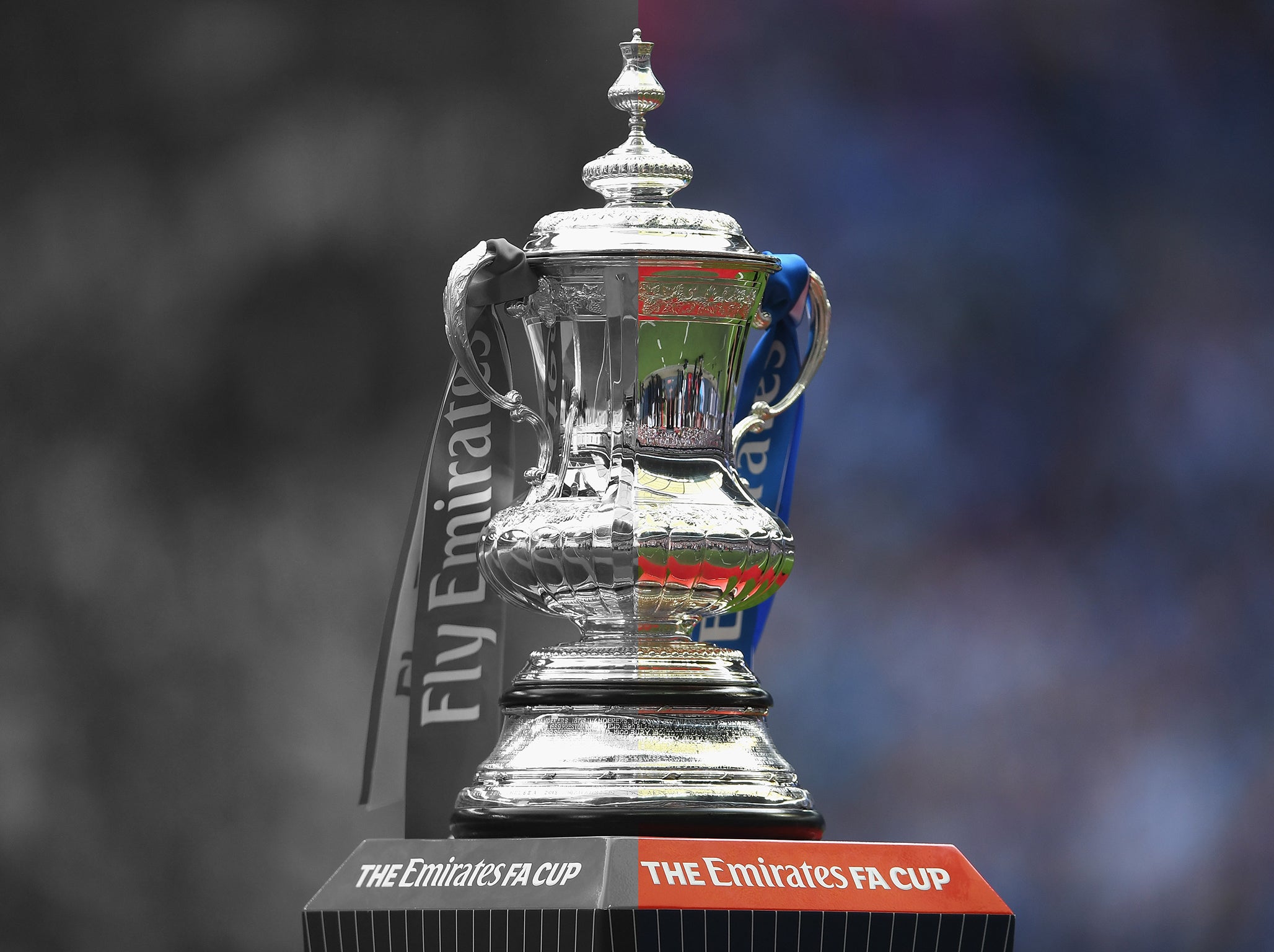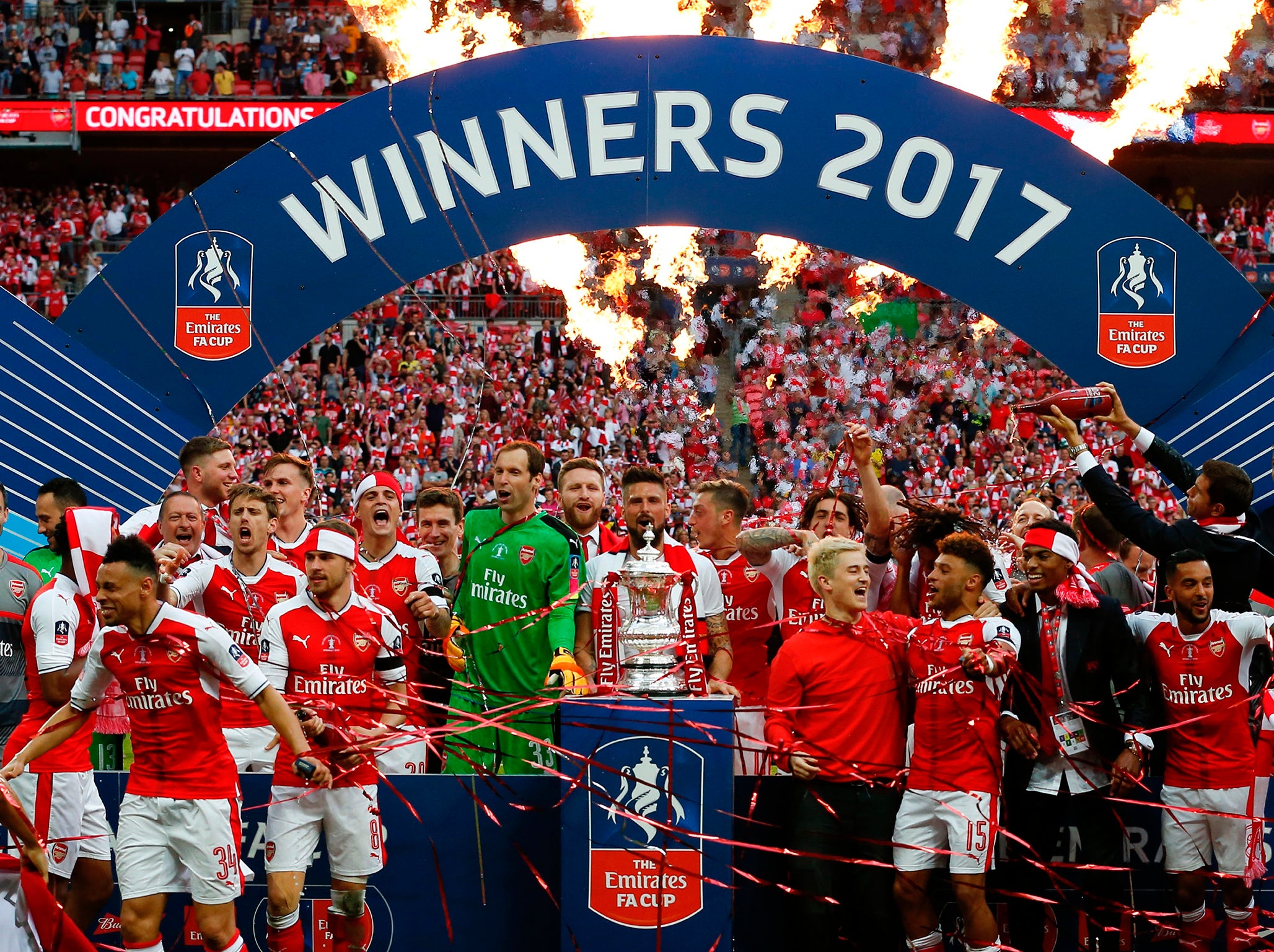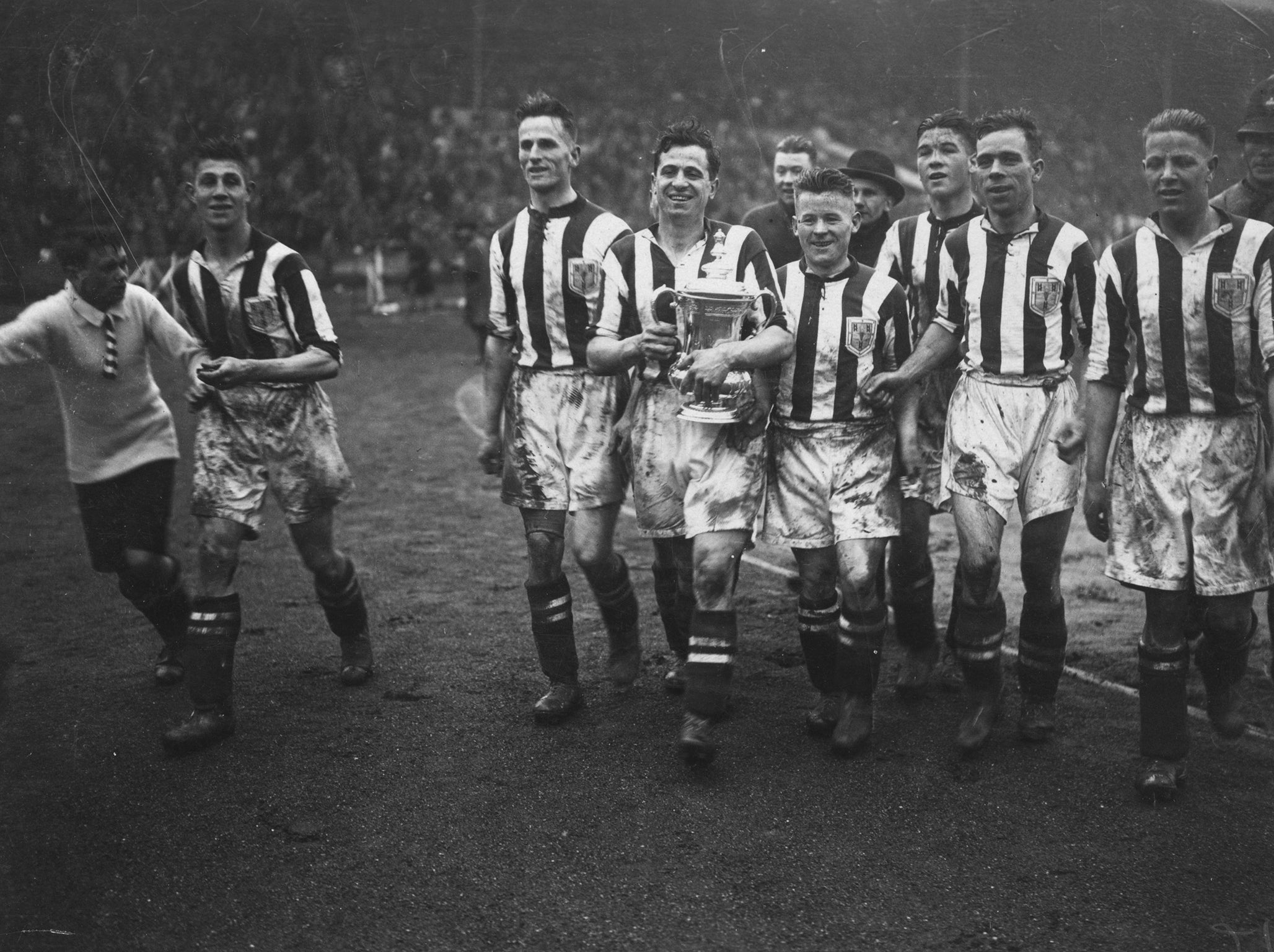Of course the FA Cup isn’t what it used to be… but that doesn’t matter very much
Want to ‘save’ the FA Cup? Easy: reintegrate the Premier League back into the Football League, switch the Champions League to a knockout format, and reverse 30 years of global capitalism

Your support helps us to tell the story
From reproductive rights to climate change to Big Tech, The Independent is on the ground when the story is developing. Whether it's investigating the financials of Elon Musk's pro-Trump PAC or producing our latest documentary, 'The A Word', which shines a light on the American women fighting for reproductive rights, we know how important it is to parse out the facts from the messaging.
At such a critical moment in US history, we need reporters on the ground. Your donation allows us to keep sending journalists to speak to both sides of the story.
The Independent is trusted by Americans across the entire political spectrum. And unlike many other quality news outlets, we choose not to lock Americans out of our reporting and analysis with paywalls. We believe quality journalism should be available to everyone, paid for by those who can afford it.
Your support makes all the difference.Move the semi-finals away from Wembley. Move the final back to 3pm. Make the higher-ranked team play away from home. Give a Champions League place to the winner. Play all games at the weekend. Ban clubs from making wholesale changes. Ban broadcasters from showing all-Premier League ties before the fifth round. Scrap the League Cup. Scrap replays. Or maybe make replays optional if both clubs agree. Or maybe abolish replays between teams in the same division. Scrap extra time and go straight to penalties. Scrap supplementary broadcast payments. Make Premier League teams enter the competition earlier. Make Championship teams enter the competition earlier. Cap ticket prices. Increase prize money.
At various points in the last few years, all of the above have been seriously proposed as ideas for saving the FA Cup, or at the very least restoring it to… well, we’ll come to that in a minute. Some of them are decent ideas. Some of them are even my ideas. But as this year’s Cup weekend grinds to an inertial halt, more than 72 hours after it started, perhaps it’s time to sidestep these smaller questions and address the larger one. What, exactly, are we saving? And why, exactly, are we saving it?
The idea that the FA Cup requires saving is underpinned by two fundamental assumptions. The first is that the FA Cup isn’t what it used to be: its romance has gone, its prestige tarnished, its traditions eroded. The second is that the competition thus requires a makeover, a radical or at least significant change of course in order to adapt it to the current age.
You need be neither philosopher nor philologist to recognise the inherent tension in those two positions. The upshot, then, is this curious and surprisingly tenacious school of thought that advocates safeguarding the FA Cup for the future by… putting everything back to the way it was. It’s what tends to happen when nostalgia runs bonce-first into the brutal and bewildering reality of modernity, and if it sounds familiar, then maybe it’s because this is also the basic premise of Brexit.
Even the merest pause for thought would reveal that the FA Cup’s fall from prominence is attributable largely to factors far beyond its control: the runaway success of the Premier League and the Champions League, the in-built advantage enjoyed by weekly round-robin football in a landscape dominated by broadcast rights, the globalisation of the elite game, the technological advances that allow us to watch football from all over the world while sitting on the top deck of the No16 bus to Silverknowes.
And so we should probably start telling the truth about this. Want to “save” the FA Cup? Easy: just reintegrate the Premier League back into the Football League, convince Uefa to restore the Champions League to a straight knockout format, rebuild the Iron Curtain, uninvent the smartphone and satellite dish, and reverse three decades of global capitalism.
But those old duffers at the FA just won’t, will they?

Of course the FA Cup isn’t what it used to be. Very little is. But it’s still the world’s greatest domestic Cup competition, for what that’s worth. The 2016-17 edition was probably the greatest of modern times: big shocks, fairytale stories like Sutton and Lincoln, an A-list semi-final line-up and audiences touching 7.7 million.
This season’s competition may not quite be as great, but that’s the luck of the Cup for you. If we wanted a competition where everybody just played entertaining football for nine months and you got a predictable winner at the end, they could just call it the Bundesliga.

So, amid a fresh flurry of five-point plans, ten-point manifestos and FA Cup mayday calls, allow me to suggest an alternative course of action. Leave it as it is. It’s fine. Championship managers will continue playing second-string teams against Premier League opposition, who will continue playing their youth-team in response. It won’t really matter, and as time goes on it may even matter less. But it’ll be fine.
People will continue moaning about it. People will continue arguing over whether Herbert Chapman (1927-30), Don Revie (1965-68) or Mauricio Pochettino (2016-date) need it in order to win a trophy. Sports editors will continue asking their staff to come up with ideas for saving it. The world will keep spinning. The FA Cup will still be there. And it’ll be fine.
Join our commenting forum
Join thought-provoking conversations, follow other Independent readers and see their replies
Comments